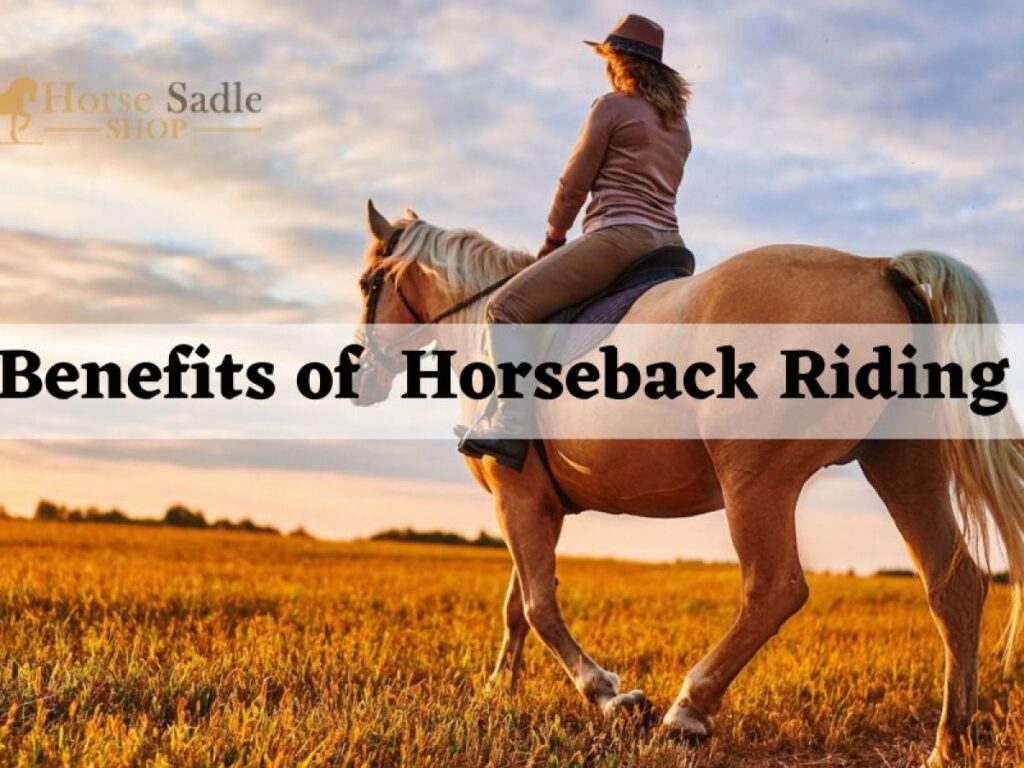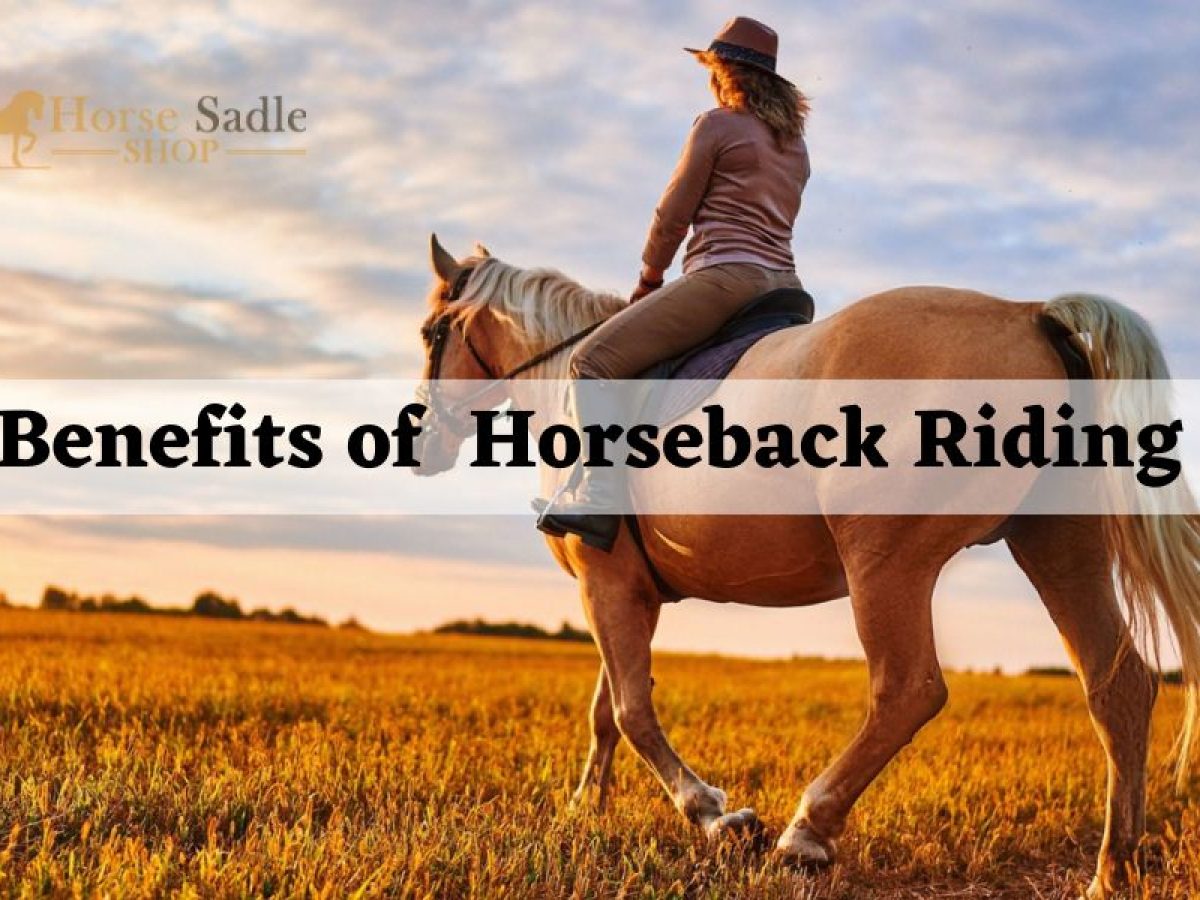Looking for a unique and enjoyable way to relieve stress? Look no further than horseback riding. Horseback riding is not only a fun outdoor activity, but it also offers numerous benefits for stress relief. As you ride a horse, you can feel a sense of freedom and connection with nature, allowing your worries and anxieties to melt away. Moreover, the rhythmic motion of the horse can be incredibly soothing, helping to calm your mind and relax your body. Whether you’re a seasoned rider or a beginner, horseback riding can be a fantastic way to escape the pressures of daily life and find inner peace. So saddle up and discover the incredible benefits of horseback riding for stress relief.
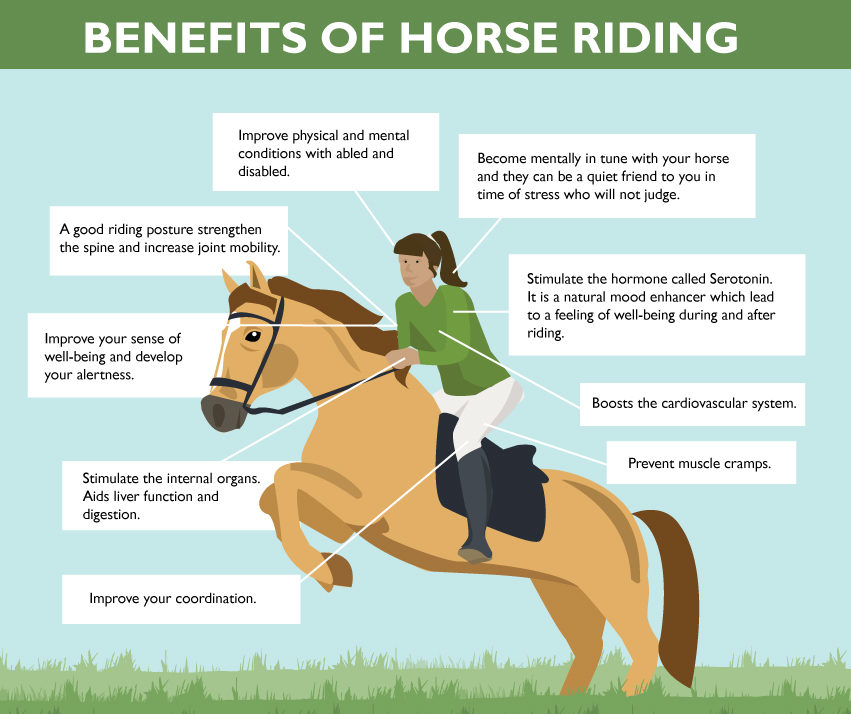
The Physical Benefits of Horseback Riding
Improves balance and coordination
Horseback riding requires maintaining balance and coordination to stay in the saddle and effectively communicate with the horse. As you ride, your body adjusts and adapts to the horse’s movements, helping to improve your overall balance. The constant need for coordination between your hands, legs, and body while riding also enhances your motor skills and hand-eye coordination.
Strengthens core muscles
When riding a horse, you engage your core muscles to maintain stability and posture in the saddle. The constant effort to stabilize your body activates and strengthens your abdominal, back, and pelvic muscles. Regular horseback riding sessions can effectively tone and strengthen your core muscles, leading to improved posture, stability, and overall strength.
Increases flexibility and muscle tone
Horseback riding involves a wide range of movements that require flexibility and muscle coordination. As you ride, you use your leg muscles to guide the horse, which promotes flexibility and strengthens the leg muscles. Additionally, the movement of the horse’s body stimulates the muscles in your hips, pelvis, and lower back, helping to improve flexibility and muscle tone in these areas.
Improves cardiovascular fitness
Horseback riding is not just a leisurely activity. It can be physically demanding and a great cardiovascular workout. As you ride, your heart rate increases, and your muscles are engaged, requiring oxygen to perform. This increased demand for oxygen and blood circulation helps to improve cardiovascular fitness over time. Regular riding sessions can contribute to a healthier heart and improved overall cardiovascular health.
Enhances posture and body alignment
Maintaining correct posture and body alignment is essential while riding a horse. To communicate effectively with the horse and maintain balance, you need to align your body correctly. Regular horseback riding can help improve posture by strengthening the muscles that support it. As your core muscles become stronger, they can provide better support to your spine, leading to improved posture and body alignment.
The Mental Benefits of Horseback Riding
Reduces stress and anxiety
One of the most well-known benefits of horseback riding is its ability to reduce stress and anxiety. The rhythmic motion of the horse, the connection with nature, and the focus required in riding can help calm the mind and provide a sense of tranquility. Additionally, being around horses has been shown to decrease levels of the stress hormone cortisol, resulting in a calmer and more relaxed state of mind.
Boosts mood and overall well-being
Spending time with horses and engaging in horseback riding activities can have a positive impact on your mood and overall well-being. The experience of riding and connecting with another living being can release endorphins, which are natural mood-boosting chemicals in the brain. The sense of accomplishment and joy that comes from mastering new riding skills also contributes to an improved sense of well-being.
Increases self-confidence and self-esteem
Successfully riding a horse and developing the necessary skills can greatly boost your self-confidence and self-esteem. Overcoming challenges and building a bond with your horse gives you a sense of accomplishment and a belief in your own abilities. As you progress in your riding, you gain confidence in your skills, which can transfer to other areas of your life as well.
Enhances concentration and focus
When horseback riding, you need to be fully present and focused on the task at hand. Riding requires concentration to maintain balance, communicate with the horse, and react to any changes in the environment. Regular riding sessions can help improve concentration and focus, as you train your mind to remain present and attentive while engaging with the horse.
Promotes relaxation and mindfulness
Horseback riding offers a unique opportunity to disconnect from the hustle and bustle of everyday life and fully immerse yourself in the present moment. As you ride, you can let go of worries and distractions, allowing yourself to be fully present with the horse. This state of relaxation and mindfulness can have numerous benefits for your mental well-being, including reduced stress and increased clarity of mind.
The Emotional Benefits of Horseback Riding
Provides a sense of freedom and independence
Horseback riding can provide a sense of freedom and independence unlike any other activity. As you sit atop a powerful and majestic horse, you experience a sense of liberation and the ability to navigate your surroundings with ease. The feeling of control and connection with the horse can foster a sense of independence and empowerment.
Builds trust, empathy, and communication skills
Establishing a bond with a horse requires building trust, empathy, and effective communication. Horses are incredibly perceptive animals and can sense your emotions and intentions. Through interacting with your horse, you learn to trust and understand each other, enhancing your ability to connect with and empathize with others in your life. Learning to communicate effectively with your horse can also improve your interpersonal communication skills.
Promotes emotional regulation and stress management
Interacting with horses has been shown to promote emotional regulation and stress management. Horses are highly sensitive to human emotions and can often mirror your emotional state. By being in their presence and engaging in activities like horseback riding, you can learn to regulate your emotions and manage stress more effectively. The calming effect of horses can help alleviate anxiety and promote a sense of emotional well-being.
Creates a bond and connection with the horse
Horseback riding allows you to form a unique bond and connection with your horse. Spending time together, sharing experiences, and relying on each other for support creates a deep emotional connection. This bond can be incredibly fulfilling and bring a sense of companionship and understanding that is both rare and special.
Offers a sense of accomplishment and pride
Progressing in horseback riding and achieving new skills and goals can give you a great sense of accomplishment and pride. Whether it’s mastering a new riding technique, completing a challenging trail ride, or participating in a competition, reaching milestones in your riding journey can boost your self-esteem and provide a sense of fulfillment. The feeling of pride and satisfaction can extend beyond the riding arena and positively impact other areas of your life.
The Social Benefits of Horseback Riding
Encourages teamwork and cooperation in group lessons
Taking part in group horseback riding lessons fosters teamwork and cooperation. Collaborating with fellow riders, sharing the space and horses, and supporting each other’s progress creates a sense of camaraderie. You learn to work together to achieve common goals, which can extend beyond the riding arena and into other group activities.
Fosters new friendships and social connections
Horseback riding offers ample opportunities to meet like-minded people and form new friendships. Whether it’s through group lessons, trail rides, or equestrian events, you are likely to encounter fellow horse enthusiasts. The shared passion for horses and riding creates a strong foundation for friendship and social connections. Building relationships within the equestrian community can provide a sense of belonging and support.
Builds a sense of community within the equestrian world
Engaging in horseback riding activities often leads to becoming part of a larger community. The equestrian world is diverse and inclusive, bringing together people from various backgrounds and age groups. Being part of this community creates a sense of belonging and allows for shared experiences, knowledge, and support. The connections forged within the equestrian community can be long-lasting and impactful.
Provides opportunities for competition and camaraderie
Horseback riding offers numerous opportunities for friendly competition, whether it’s participating in horse shows, dressage competitions, or trail riding events. Competitions provide a chance to showcase your skills, challenge yourself, and celebrate achievements. Engaging in friendly competition also fosters camaraderie and a sense of sportsmanship among riders, as you support and cheer each other on.
Offers a supportive and inclusive environment
The equestrian world is known for its supportive and inclusive environment. Whether you are a beginner or an experienced rider, the horseback riding community often welcomes newcomers with open arms. The shared passion for horses creates a sense of unity, and riders are often willing to offer guidance, advice, and encouragement to one another. The supportive nature of the equestrian community can enhance the overall enjoyment of horseback riding.
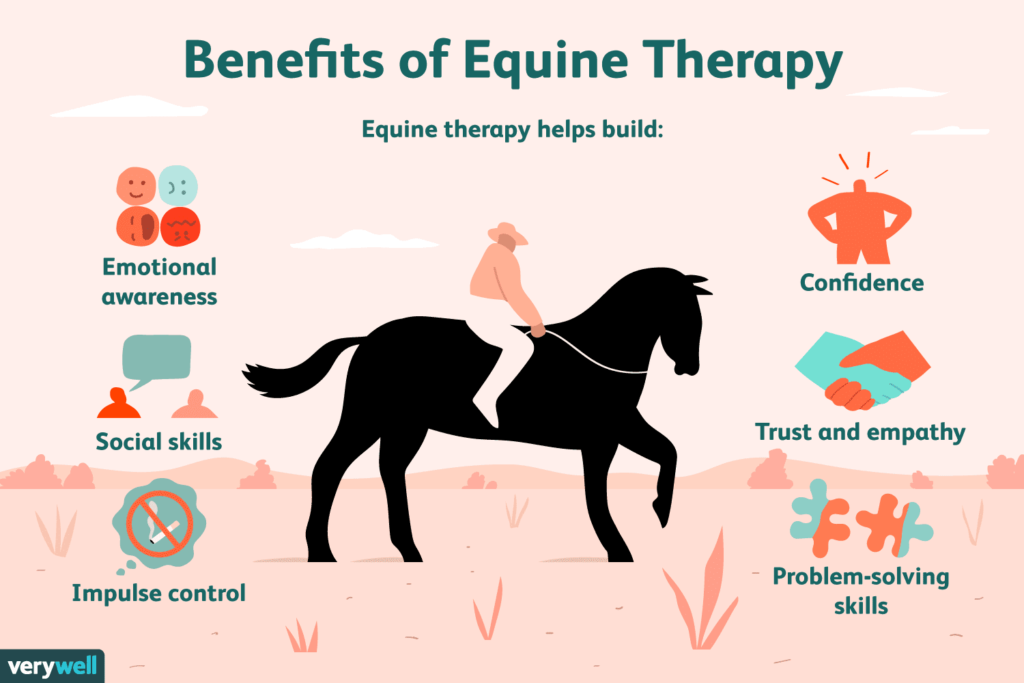
Horseback Riding as a Therapeutic Activity
Equine-assisted therapy for individuals with disabilities
Equine-assisted therapy is a form of therapy that involves interactions with horses to improve physical, emotional, and cognitive well-being. It is particularly beneficial for individuals with disabilities, such as cerebral palsy, autism, and Down syndrome. The movement of the horse can provide therapeutic sensory input, improve balance and coordination, and promote emotional regulation and self-confidence.
Therapeutic riding for physical, cognitive, and emotional challenges
Therapeutic riding, also known as adaptive riding, aims to address physical, cognitive, and emotional challenges through horseback riding. It is often used to help individuals with conditions such as multiple sclerosis, traumatic brain injuries, and post-traumatic stress disorder. The movements and interaction with the horse can improve balance, strength, coordination, cognitive function, and emotional well-being.
Hippotherapy for improving motor skills and sensory integration
Hippotherapy is a therapeutic approach that uses horseback riding as a means to address motor skills and sensory integration. It is commonly used for individuals with conditions such as cerebral palsy, developmental delays, and sensory processing disorders. The multidimensional movement of the horse can help improve muscle strength, coordination, balance, and sensory regulation.
Psychological benefits of interacting with horses
Interacting with horses can have profound psychological benefits. Horses are non-judgmental and provide a safe and supportive environment for emotional expression. The act of grooming, bonding, and riding a horse can promote relaxation, reduce anxiety, and improve self-esteem. The therapeutic nature of the horse-human bond can help individuals develop emotional resilience and enhance their overall well-being.
The role of horseback riding in mental health treatment
Horseback riding has gained recognition as a valuable adjunct therapy in mental health treatment. Whether used as part of a comprehensive treatment plan or as a standalone activity, horseback riding can have positive effects on mental health. The physical activity, connection with nature, and interaction with horses can alleviate symptoms of depression, anxiety, and trauma. Horseback riding can also help develop coping strategies, improve self-esteem, and enhance overall mental well-being.
Choosing the Right Horse for Stress Relief
Consideration of temperament and energy levels
When choosing a horse for stress relief and relaxation, it’s important to consider their temperament and energy levels. Some horses are naturally more calm and gentle, while others may be more spirited and high-energy. Assessing the horse’s personality and energy level can help determine if their temperament aligns with your goals of stress relief and relaxation.
Matching the rider’s skill level and riding style
Matching the horse to the rider’s skill level and desired riding style is crucial for a stress-relieving experience. If you’re a beginner seeking relaxation, a well-trained, calm, and experienced horse may be the best fit. Riders with more advanced skills may prefer a horse that can provide a greater challenge or engage in specific riding disciplines that bring them joy and relaxation.
Importance of a well-trained and reliable horse
A well-trained and reliable horse is essential for a stress-relief experience. A horse that responds well to commands, has a calm temperament, and is well-behaved can provide a sense of security and relaxation. It’s important to ensure that the horse you choose has undergone proper training and is suitable for your level of riding skill and desired stress-relief activities.
Qualities to look for in a stress-relief horse
When selecting a horse for stress relief, look for qualities such as calmness, patience, willingness, and a gentle nature. Horses that have a history of being used for therapy or relaxation purposes may possess the desired qualities. Additionally, horses with a cooperative attitude and a natural inclination to form bonds and connections with humans can contribute to a more rewarding stress-relieving experience.
Rentals and guided tours for beginners
For beginners seeking stress relief through horseback riding, rentals and guided tours can be a great option. Many equestrian centers and riding facilities offer rental services, allowing individuals to experience the joy of horseback riding without the commitment of horse ownership. Guided tours provide an opportunity to explore scenic trails on horseback while under the supervision of experienced guides.
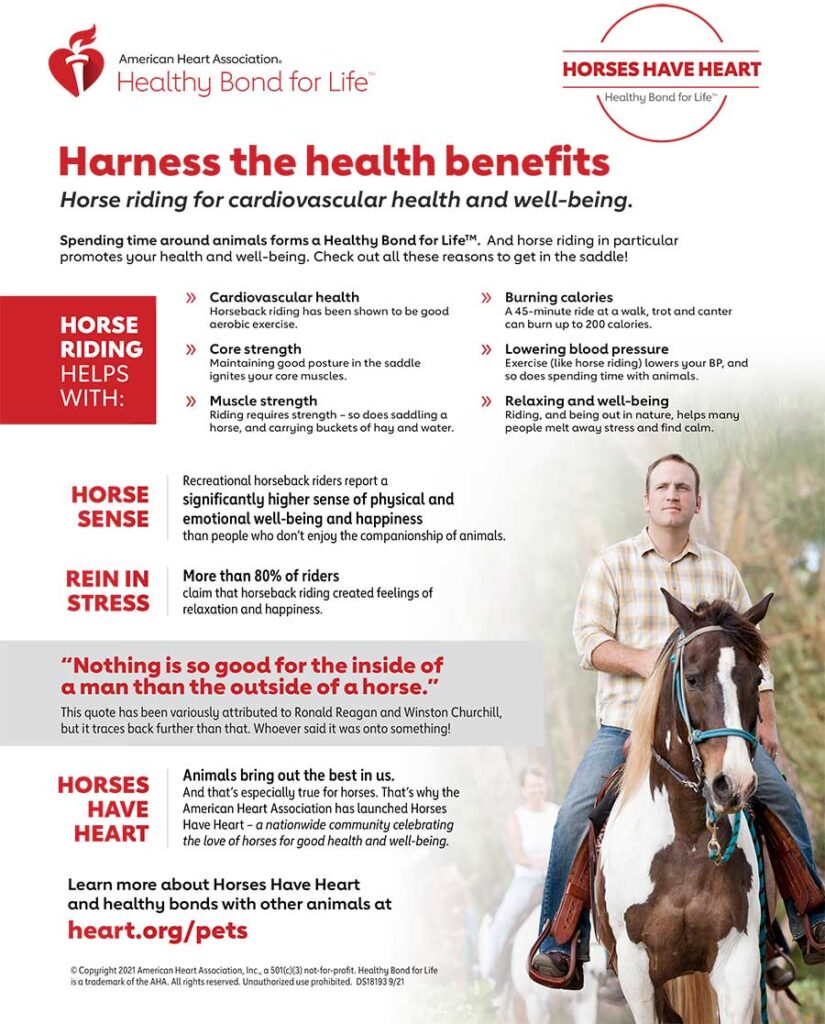
Preparing for a Horseback Riding Session
Proper attire and equipment for safety and comfort
Before engaging in a horseback riding session, it’s important to ensure you have the proper attire and equipment for safety and comfort. Wear a properly fitted riding helmet to protect your head in case of a fall or accident. Choose comfortable, lightweight clothing that allows for ease of movement. Wear appropriate riding boots with a heel to prevent your feet from slipping through the stirrups.
Stretching and warm-up exercises for riders
To prepare your body for horseback riding, incorporate stretching and warm-up exercises into your routine. Stretch your legs, arms, and back to increase flexibility and prevent muscle strain. Perform exercises that target your core muscles, such as planks and leg lifts, to enhance stability and balance. Warm up your muscles with light cardio exercises, such as jogging or brisk walking, to increase blood flow and prepare your body for physical activity.
Basic horse care and grooming before riding
Participating in the care and grooming of your horse before riding can create a bond and establish trust between you and the horse. Learn basic horse care techniques, such as grooming, tacking up, and checking for any signs of discomfort or injury. Grooming not only keeps the horse clean but also allows you to observe and connect with them on a deeper level.
Awareness of personal limitations and physical condition
Before each horseback riding session, it’s essential to be aware of your personal limitations and physical condition. Evaluate your current fitness level and any physical limitations or injuries that may affect your riding experience. Communicate any concerns or restrictions to your instructor or guide to ensure a safe and tailored riding experience.
Guidelines for dealing with fear and anxiety
If you experience fear or anxiety related to horseback riding, it’s important to address these emotions before and during your riding session. Communicate your fears or concerns to your instructor or guide, who can provide reassurance and guidance. Gradually expose yourself to riding activities, starting with less challenging tasks and gradually progressing as you gain confidence. Practice deep breathing and relaxation techniques to calm your mind and body while riding.
Stress-Relieving Techniques While Horseback Riding
Deep breathing and relaxation exercises on horseback
Deep breathing and relaxation exercises can be practiced while horseback riding to enhance the stress-relieving experience. Focus on your breath, taking slow, deep inhales and exhales. Practice diaphragmatic breathing, allowing your belly to expand with each inhale and contract with each exhale. Engaging in relaxation exercises, such as progressive muscle relaxation, can release tension in your body and promote a sense of calmness.
Mindfulness and meditation practices during riding
Practicing mindfulness and meditation during horseback riding can heighten the stress-relieving benefits. As you ride, focus your attention on the present moment, fully immersing yourself in the sensations and surroundings. Notice the movement of the horse, the sounds of nature, and the feeling of connection with your horse. Engage in meditation techniques, such as mindful breathing or visualization, to cultivate a state of inner peace and tranquility.
Engaging in rhythmic and repetitive movements
The rhythmic and repetitive movements of horseback riding can have a soothing effect on the mind and body. As you ride, allow yourself to sync with the gentle sway and motion of the horse. Focus on the rhythm of the horse’s footsteps and the repetitive movements of your body. This sensory experience can induce a state of relaxation and promote stress relief.
Connecting with nature and the surrounding environment
Horseback riding often takes place in natural and scenic environments, providing an opportunity to connect with nature. Embrace the beauty of your surroundings, the fresh air, and the sounds of nature. Take a moment to appreciate the peace and serenity of the natural world. This connection with nature can enhance the stress-relieving effects of horseback riding and promote a sense of well-being.
Using visualization and positive affirmations
Using visualization and positive affirmations while horseback riding can enhance the stress-relieving experience. Visualize yourself riding confidently and smoothly, envisioning the desired outcome. Repeat positive affirmations to yourself, such as “I am calm and in control” or “I trust my abilities.” Harnessing the power of visualization and positive self-talk can reinforce a sense of relaxation, confidence, and stress relief.
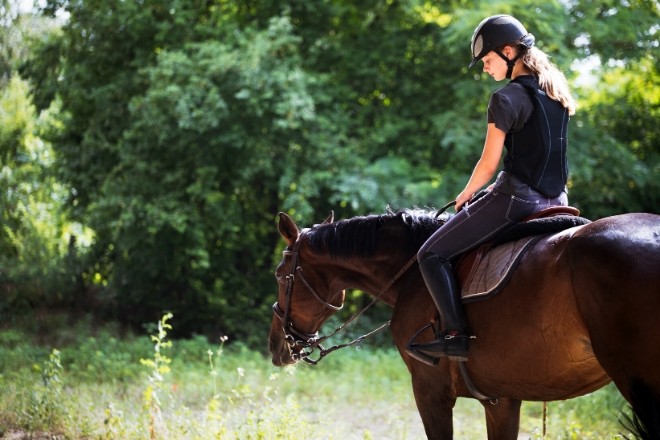
Safety Measures in Horseback Riding
Wearing a properly fitted helmet at all times
Safety should always be a priority when horseback riding, and wearing a properly fitted helmet is crucial to protect your head from potential injuries. Choose a certified equestrian helmet that meets safety standards and ensure it fits securely on your head. Replace your helmet if it has been involved in a fall or shows signs of damage.
Importance of professional supervision and guidance
Whether you are a beginner or an experienced rider, professional supervision and guidance are essential for safe horseback riding. Work with qualified instructors or guides who can provide proper instruction, ensure your safety, and guide you through riding techniques and exercises. Their expertise and supervision help minimize risks and ensure a positive and safe riding experience.
Learning basic riding techniques and commands
Before riding, it’s important to learn basic riding techniques and commands to communicate effectively with your horse. Understand how to steer, stop, and guide your horse using proper rein and leg aids. Learn the correct riding position and posture to maintain balance and control. Proper knowledge of riding techniques and commands enhances your safety and the safety of those around you.
Respecting the horse’s boundaries and cues
Horses have their own boundaries and ways of communicating, and it’s crucial to respect and understand them while riding. Pay attention to your horse’s body language, such as ear position, tail movement, or muscle tension, to gauge their comfort level and mood. Avoid pushing your horse beyond their limits or forcing them into situations that make them uncomfortable. By respecting the horse’s boundaries and cues, you create a safer and more harmonious riding experience.
Knowing emergency procedures and first aid
Familiarize yourself with emergency procedures and first aid for horseback riding incidents. Learn how to safely dismount in case of a fall, how to control a runaway horse, and how to handle minor injuries. Carry a first aid kit with essential supplies and know how to provide basic first aid until professional help arrives. Being prepared and knowledgeable about emergencies can help ensure the safety of both you and your horse.
The Role of Horseback Riding in Stress Management
Horses as intuitive and empathetic animals
Horses are known for their intuitive and empathetic nature, making them excellent companions in stress management. They can sense human emotions and mirror them, providing a unique opportunity for emotional release and support. Interacting with horses can help you develop emotional awareness, improve self-regulation, and ultimately manage stress more effectively.
Effect of horseback riding on reducing cortisol levels
Cortisol is a hormone released in response to stress, and high cortisol levels can have negative effects on the body and mind. Horseback riding has been shown to reduce cortisol levels, helping to counteract the negative impacts of stress. The calming environment, rhythmic movements, and connection with the horse contribute to a relaxation response, leading to lower cortisol levels and a state of calmness.
Hormonal and physiological responses to riding
Horseback riding elicits various hormonal and physiological responses that contribute to stress management. Riding stimulates the release of endorphins, serotonin, and oxytocin, which are associated with improved mood, relaxation, and overall well-being. Physiologically, horseback riding encourages deep breathing, which activates the parasympathetic nervous system and triggers a relaxation response.
Incorporating horseback riding into a stress management routine
Incorporating horseback riding into a stress management routine can provide ongoing and consistent benefits for mental and emotional well-being. Establish a regular riding schedule that allows you to engage with horses and experience the stress-relieving effects. Whether it’s a weekly lesson, trail ride, or therapeutic riding session, consistency is key to harnessing the long-term benefits of horseback riding for stress management.
Long-term effects of horseback riding on stress resilience
Engaging in horseback riding over the long term can contribute to increased stress resilience. As you develop riding skills, build a bond with your horse, and gain confidence, you become better equipped to cope with stressors in other areas of life. The overall experience of horseback riding and the lessons learned through the partnership with the horse can foster resilience, allowing you to navigate life’s challenges with greater ease.
